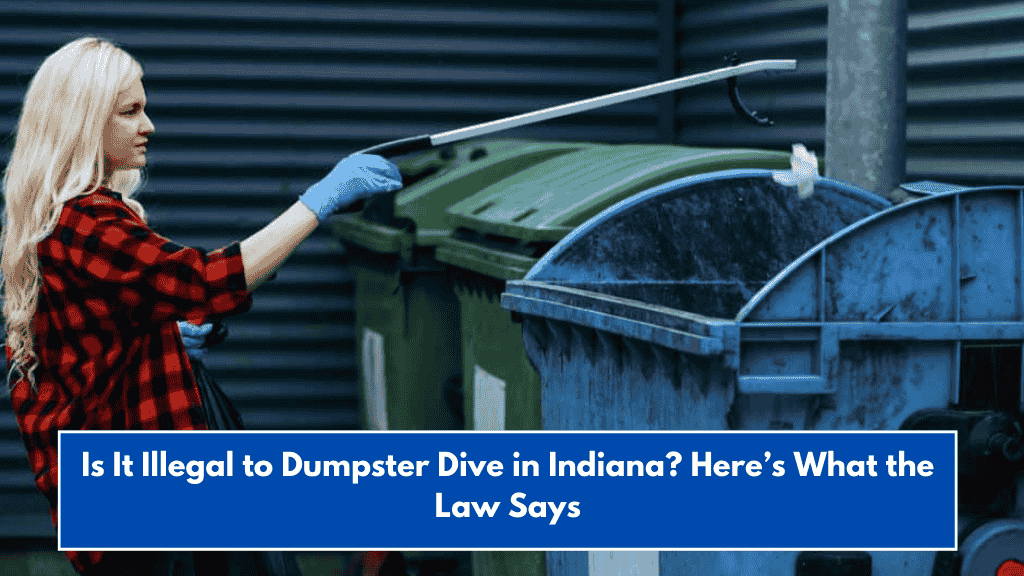With the rising cost of living, more people are seeking alternative ways to cover expenses and feed their families. One such solution gaining attention is dumpster diving—an activity that many might consider unconventional, but it’s helping some find food and goods for free or at a reduced cost.
What Is Dumpster Diving?
For those who are unfamiliar, dumpster diving involves searching through trash or dumpsters to find items that can be used, sold, or repurposed. These items may include food, clothes, household goods, or even electronics. Some people dive for the purpose of personal use, while others may look to resell these items for a profit. There are even popular Facebook groups, YouTube, and TikTok channels dedicated to sharing tips and experiences about dumpster diving.
What Can You Find When Dumpster Diving?
If you search online, you’ll find numerous videos of people regularly diving through dumpsters, often discovering high-quality, unused goods. Many find like-new items such as clothes, electronics, and furniture, which they can keep or sell. Others dive for food—like bread, produce, and packaged items that are still safe to eat. The idea is that these items would otherwise go to waste, making dumpster diving a way to reduce waste and find free resources.
Is Dumpster Diving Ethical or Moral?
Some people consider dumpster diving to be immoral or unethical, sometimes even viewing it as stealing. However, from an environmental perspective, it could be argued that dumpster divers help prevent waste and contribute to sustainability. In 2020, Sygnifyd, a platform focused on e-commerce protection, reported that around 5 billion pounds of retail goods are discarded in landfills after being returned to stores. By rescuing these items, dumpster divers are helping to reduce landfill waste.
Clothes and Textiles: A Major Environmental Issue
Clothes and textiles make up a large portion of landfill waste. According to TheRoundUp.org, 66% of unwanted clothes in the U.S. end up in landfills. Dumpster divers may be playing an important role in reducing this environmental issue by rescuing perfectly wearable clothes.
Food Waste: A Shocking Statistic
The amount of food wasted in the U.S. is staggering. OnlineDasher.com reports that grocery stores throw away thousands of dollars worth of food each week, adding up to 16 billion pounds of food waste nationwide. Much of this food ends up in landfills, even though it could still be consumed or redistributed.
Is Dumpster Diving Legal in Indiana?
While the moral and ethical aspects of dumpster diving can be debated, you may be wondering: Is it legal? In Indiana, dumpster diving is generally legal under certain conditions. If the dumpster is placed on the curb or on a sidewalk, these items are considered public property and can be taken without issue. However, if the dumpster is located on private property, it could be considered trespassing, and you could be arrested for entering private land without permission.
To avoid legal trouble, it’s best to follow these guidelines:
- Don’t dive near dumpsters with “No Trespassing” signs.
- Avoid locked dumpsters or those surrounded by fences.
Safety Tips for Dumpster Diving
If you decide to try dumpster diving, safety should be your priority. Dumpsters can be dangerous places due to sharp objects, hazardous materials, or even harmful bacteria. To stay safe, consider the following precautions:
- Wear closed-toed shoes to protect your feet.
- Use gloves to handle items safely.
- Consider going with a buddy for extra safety in case anything goes wrong.
Dumpster diving is becoming an increasingly popular way for some people to find free goods and food, reduce waste, and help the environment. While it can raise ethical and legal questions, many feel that it’s a practical solution to the problem of wastefulness, especially in a world where so much food and merchandise are thrown away. If you choose to dive, always be mindful of local laws and safety precautions. As long as you respect the rules and stay safe, dumpster diving can be a helpful, cost-effective practice.














